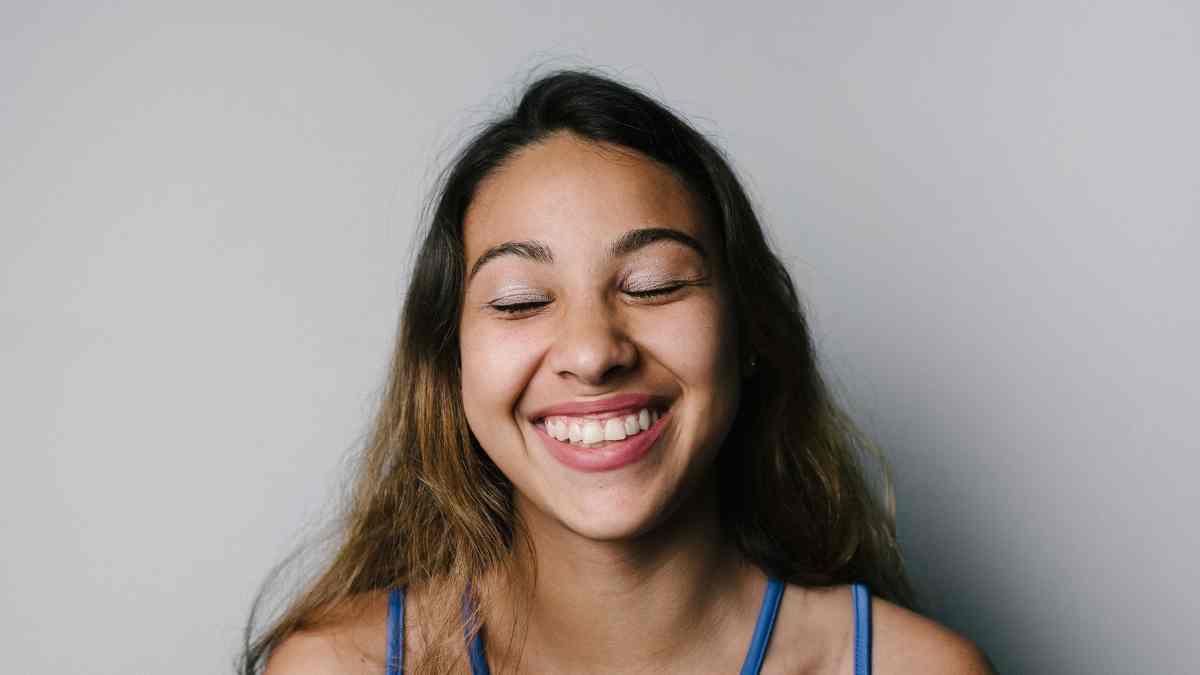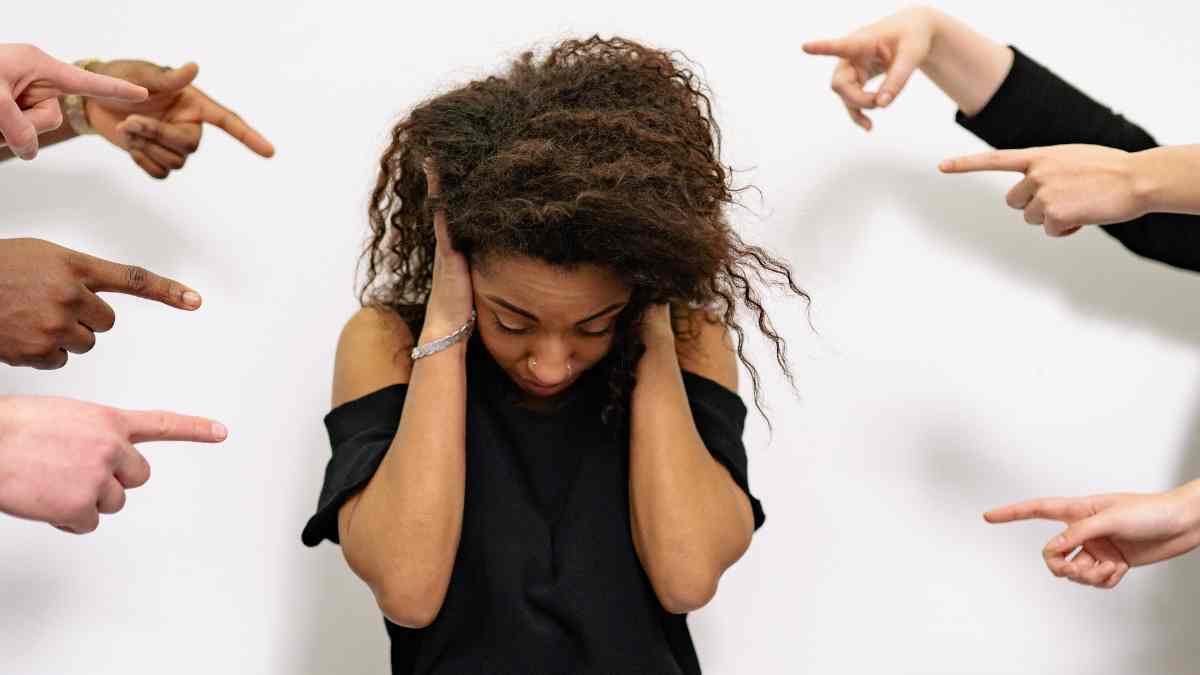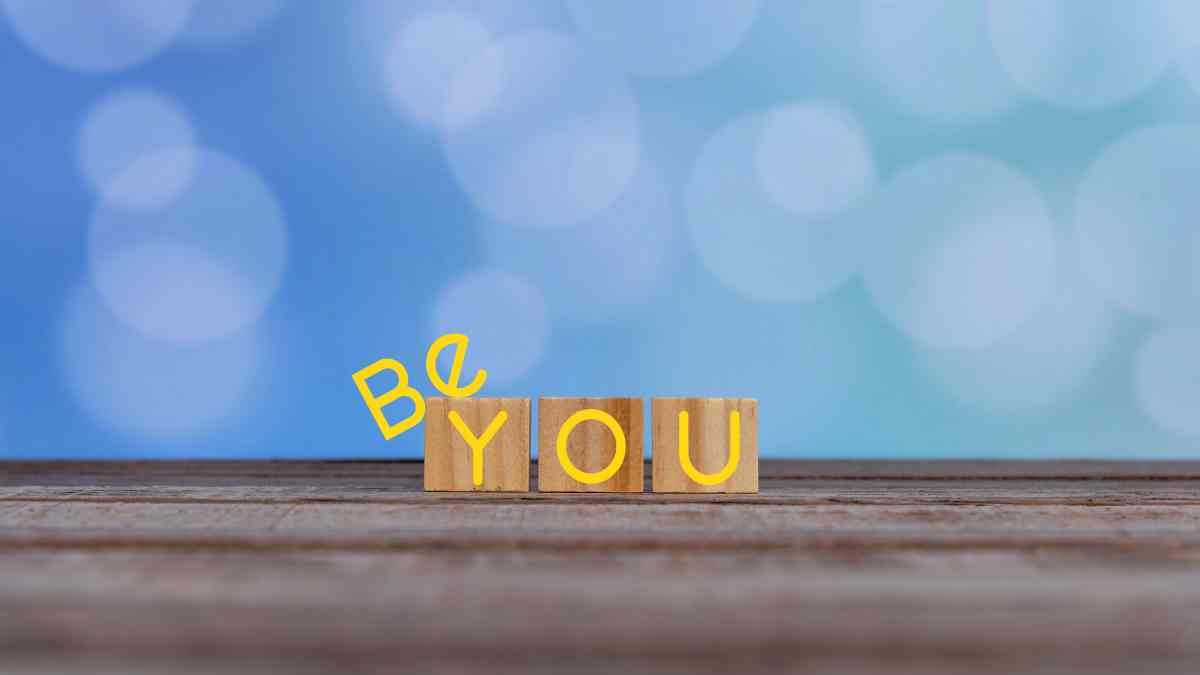
The deeper we go into inner child work and look at the shadow, the more layers appear to be brought into the light. As a recovering people-pleaser, I’ve spent most of my life being whatever was needed ‘for other people’.
Why did I do this?
Anything we do that is against our natural flow is often to keep us safe. We have many behaviours we may engage in that protect us from perceived harm. For me, it was the sense that if I was truly myself around others growing up, other people would respond negatively. It could be through resentment, bitterness, anger, envy, and other emotions most of us find hard to handle or deal with. Whatever your reason for being inauthentic, it was never coming from a place of needing to lie about who you are, but it was an inbuilt safety mechanism created often from a young age for your own survival.
For many, being authentic meant criticism; for others, they were beaten, shamed, and abused.
Most children are born innocent; they have this spontaneous playfulness, creativity, and flow. They laugh when they are happy and cry when they are not, but if our primary caregivers have their own insecurities and wounds that have not been held in a safe space, more often than not, our parents project those wounds onto us.
If they are insecure about their place in the world and we share how proud or happy we are about something we have done, they will either outwardly criticise what we have done or more passive aggressively say words that sound loving, but the energy behind them is one of resentment and envy.
If a parent has insecurities about being alone or if they don’t have any friends, they might be pleased when you have issues with your own friends, saying that you will always have them as a friend. This is something that is quite toxic. I didn’t know this until I addressed this issue with a therapist last year.
So it’s often not that our parents are born mean, but often they learn how to be based on how they were raised; what did they have to do to be safe, and is the pattern carrying on through with each generation?
Being Authentic Feels Scary

My own experience of being authentic in my childhood was often met with anger, passive aggressive words, bitterness, resentment, and envy. And as happens in life, if we have had such deep wounds early in life, then mirrors of that wound throughout our lives into adulthood would be experienced. We start to expect certain experiences to happen; we may always be on our guard; we expect betrayal; and we may have major trust issues. We may find that even if we just a little express our authentic selves, we are shot down by our peers or co-workers.
I remember being in high school and dreading the time in the school yard during breaks and lunchtime. I never knew who to stand by or where. I never fitted into one group, and my friends would always end up making new friends and ditching me. So I always felt like the girl standing on the edge of the circle of friends, never able to squeeze into it. Instead, when they were talking about a topic and I tried to share my honest feelings, the whole group would turn around and laugh and shame me. It got so uncomfortable for me that at times I would stay in the classroom during breaks or go sit in the bathroom in a cubicle.
The more this kind of social ostracization happened throughout my childhood, the more I closed in on myself, the more I bit my tongue, the more I would people-please.
People-pleasing meant that instead of simply enjoying a conversation with others, I would go into a social setting and assess the environment and the people, like a military spy. Looking to see how everyone was, what would be the safest way to interact? How could I feel safe? So most of the time, I just said what I said to help others feel good. I rarely questioned others; I was afraid of conflict and getting into what I perceived could be difficult interactions. This always resulted in friendships ending because, as time goes on and I feel more comfortable, more of my authentic self comes out, but sometimes it comes out as anger or disagreement, and the other friend is in shock, wondering who on earth I am. This is what people-pleasers experience. The person others see is a mirror of themselves, not the person standing in front of them, so they accept and like the mask we wear, not the real us, and so it can come as a surprise or shock when we finally step forward to reveal who we truly are.
We can also think that being authentic means being brutally honest all of the time, which can alienate us from others, make relating to other people hard, and keep us alone most of the time. As a teacher I follow said in her own blog post on Authenticity vs. Just Being an A**hole
“Brutal honesty is not a tool to be taken lightly. Authenticity in the form of brutal honesty about someone else is often just an act of passive aggression, defense mechanism, a cover for emotional abuse… And often an excuse or justification for veiled personal attack. We may in fact be fooling ourselves that we love the honesty when in fact, what we love is the brutality. Brutality saves us from feeling vulnerable and powerless. It is a common reaction to feeling hurt in some way ~ TEAL SWAN
This stopped me in my tracks last night before I decided to write this blog post. I have been deliberating on making a big decision lately of letting a friend go, which I mentioned in Do You Need To Be Needed? and You Validate Your Dark And Light – Not Others and yesterday I did some inner child work and found an inner child in the dungeon of my unconscious who was in utter terror and panic. She said clearly she didn’t want to be near this friend; she scared her and made her feel icky inside. I really felt her pain, so I took her in my arms and committed to letting this friend go to protect my inner child. After making this decision, I then started to feel really disturbed about letting my friend go and about being authentic, so I started to ask myself why I was so scared.
I started to think about authenticity, and so I did another delving deep into my past, where I saw myself as a small child who had been picked on by a boy in primary school, and as an empath, I picked up everything going on. In this memory, I think I told him outright what I thought of him, and he cried. My inner child internalised this as being authentic means I’m mean, and being authentic is bad. I didn’t know another side to authenticity apart from brutal or angry honesty. This often happened because I had bitten my tongue for so long as a people-pleaser that when I couldn’t hold it in anymore, it was blurted out in a more brutal way. I had not allowed myself to be seen or share my vulnerability with this person or persons in my past; I left it until it was months or years into the friendship before this side was revealed.
So yes, being authentic scares the beejeebers out of me.
So What Is Authenticity?

If, like me, you are used to experiencing your own authenticity as brutal, blunt or angry, it’s time to see what true authenticity is so that we can start to be more authentic.
The simplest way to understand authenticity (beyond it being an uncovering of your personal essence) is that authenticity is the conscious mending of the incongruences between one’s inner self and outer self. Authenticity is when your inside matches your outside.. ~ Teal Swan – How To Be Authentic
So to be authentic, truly authentic, we need to know who we are. Quite often, people who think they are being authentic are not because they only know themselves as the image they portray to the world—the image they were shown to portray. And this isn’t just about people-pleasers; often we can have hidden subconscious traits that we learned in childhood to keep us safe, but because we have been practising those traits for such a long time, they feel like who we truly are. It isn’t until we start to look within to find out why we do what we do, where it comes from, and who is beneath the pattern or behaviour that we then discover our authentic selves.
As I write this, I begin to realise that being authentic is an unravelling process for me. Only a little authenticity will be seen gradually, but over time more will be seen as I understand myself more. So the person I thought I used to be was merely an external construct of an internal wound, so I could never have been truly authentic. Yes, little bubbles of authenticity would shine through, for example, if I were writing, dancing, singing, travelling, or in conversation with someone I trusted, but now I would like more of me to be here.
My healing path as a holistic therapist for 22 years was unauthentic, even if my personality self felt it was who I was. It was a version of me, but I didn’t know me, so it couldn’t have been authentic, and as time went on, I grew disillusioned by the path. Once I let go of this path, I had this new-found sense of freedom.
In Teal’s post, she states some very clear ways to be authentic, which I really enjoyed reading, although it was somewhat triggering, but in a good way.
Below are the main points, but please visit her blog post HERE to see it in more detail.
How To Be Authentic
1. The simplest way to understand authenticity (beyond it being an uncovering of your personal essence) is that authenticity is the conscious mending of the incongruences between one’s inner self and outer self. Authenticity is when your inside matches your outside.
2. It is a far bigger deal to not even realize or admit to yourself that an incongruence exists between your inner self and outer self and that therefore you are being inauthentic than it is to consciously choose to be inauthentic. In an ideal world, we could all be transparent, honest and authentic 24 hours a day. This is the world I want to create. But it is not the reality of the world we currently live in.
3. Be willing to look bad to yourself and others. Or at least be willing to confront the incredible terror you have of doing this. We spend our whole lives trying to avoid shame. Shame is the number one enemy to the human ego. But this means that we are constantly avoiding anything that is real about us that could possibly make us look bad to ourselves or bad to others. So we are never actually able to face and work with what is real about us.
4. The heart of being authentic is being vulnerable. The reason we aren’t authentic is because we are afraid of what will happen if we are. We are afraid that we will be rejected, unloved, not received because we have been taught either intentionally or unintentionally that we will be. Many people think they are being authentic when they aren’t because they are only exposing part of what is true.
5. The root of authenticity is knowing how you feel and admitting it to yourself and subsequently others. Your emotions are like a compass. A compass that is bringing you straight to awareness. In the same way that a compass tells you where you are located in space and what direction to go, your emotions tell you what vibration you are currently holding and what direction to go to improve that personal frequency so that the circumstances of your outer life are in alignment with your essence. Your emotions are also the doorway to discovering the subconscious limitations you have which are preventing your authenticity.
6. Become aware of your thoughts and beliefs and question them. Our thoughts and beliefs can either be true to our essence or they can be the very thing that is preventing the un-covery of our essence. The reality of me is that I may be thinking a thought like “no one will ever love me”. That thought may be preventing me from uncovering my essence. The thought itself may be an illusion, but it is still real because I am really thinking it.
7. Most of us do not see ourselves objectively. We are not aware of our actual actions. We aren’t aware of whether our inner world matches our outer world because we are inside ourselves. We are looking through the telescope of our own perspective. We watch other people, but not ourselves. Get into the habit of ‘objective viewing’. This can be done easily in meditation where you imagine stepping outside your body and watching yourself from bird’s eye view. Watch as if you are literally a bird who has no attachment to the human (you) it is watching. The human (you) is just a thing in the world that it is observing.
It seems that authenticity is a lot wider than I thought it was. I thought it was just me sharing myself with the world, but I didn’t know that the me I wanted to share wasn’t fully formed, was only part of who I really was. Now it’s time to keep looking within, observe myself when with others, and learn to feel safe and authentic. The most important message I got from Teal’s post was that I need to know who I am before I can be authentic, and that means really doing the work to unravel the patterns and behaviours I currently share with the world.
Here’s to being genuinely authentic.

Very well expressed.
Agree with you.
Can relate. Have found myself in similar situations.
Being authentic is not what many can digest or comprehend.
People like to be a part of the crowd rather than “be different” or “stand out”.
I choose to be authentic ANYWAY & every day! 🙂
May our tribe grow 🙂
Author
Thank you Anita, it is good to know our tribe is already growing. Knowing that we really need to get to know who we are beyond the patterns and conditioning to become truly authentic was and is an eye opener for me. Good to be aware!